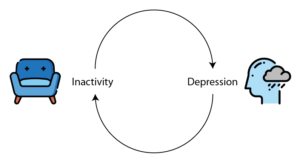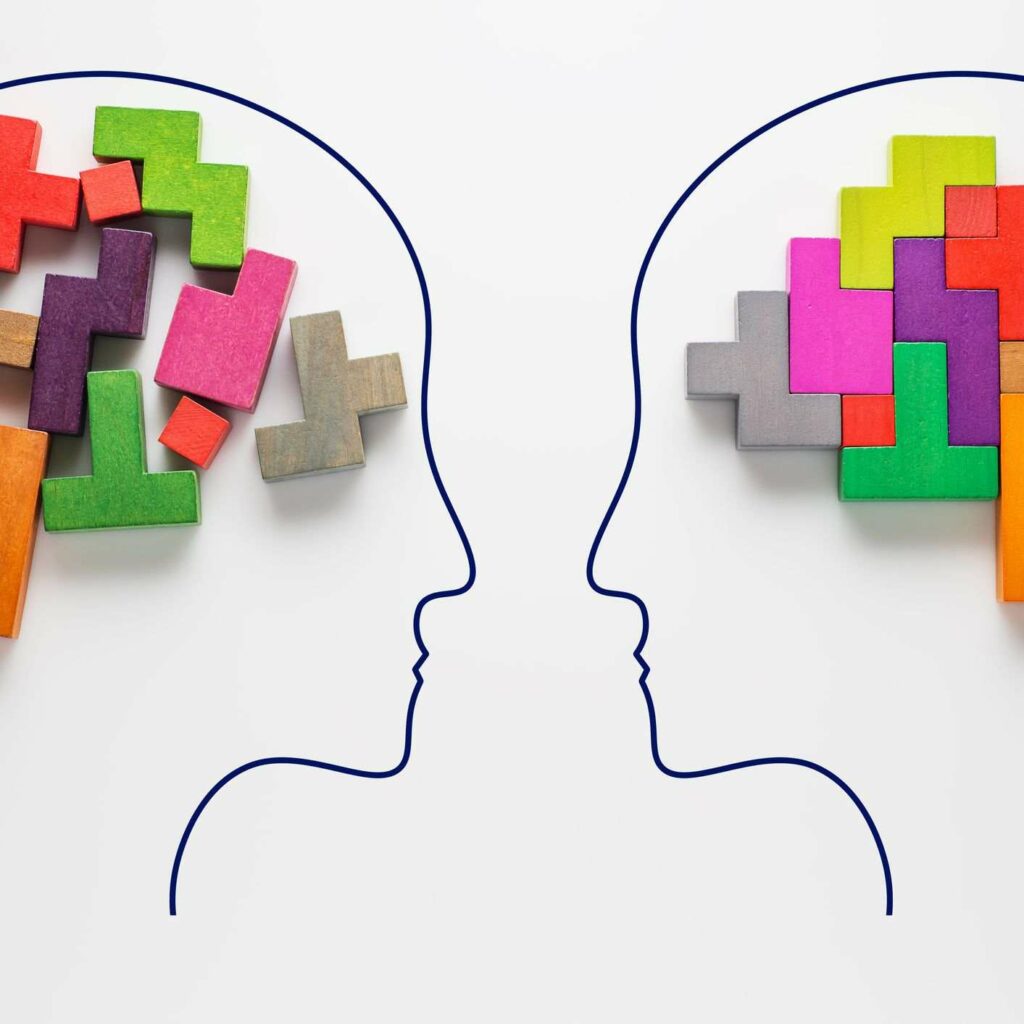Do you struggle with anxiety or depression? If so, you may want to consider trying rational emotive therapy. This is a type of cognitive-behavioral therapy that can help you manage your emotions and deal with difficult situations. In this blog post, we will discuss what rational emotive therapy is and how it can help you improve your mental health!
Contents
What Is Rational Emotive Therapy?
 Rational emotive therapy is a form of cognitive behavioral therapy that was developed by psychologist Albert Ellis in the 1950s. It is based on the premise that our emotions are determined by our thoughts and beliefs, not by external circumstances. This therapy type is also known as REBT.
Rational emotive therapy is a form of cognitive behavioral therapy that was developed by psychologist Albert Ellis in the 1950s. It is based on the premise that our emotions are determined by our thoughts and beliefs, not by external circumstances. This therapy type is also known as REBT.
REBT is based on the belief that we can control our emotions by changing our thinking and beliefs. Generally, this works by challenging and changing irrational beliefs that may be causing negative emotions. For example, if someone believes that they are a failure because they made a mistake, REBT would challenge this belief and help the individual to see that mistakes are not indicative of personal worth.
This is believed to be an effective approach for treating a wide range of mental health conditions. If you think REBT may be right for you, talk to your mental health professional about whether it may be a good fit.
How Does It Work?
It might sound a bit strange to talk about your emotions in therapy, but it can actually be very helpful. In RET, you’ll learn how to identify and challenge the irrational beliefs that are causing you distress. You’ll also learn how to develop more realistic and effective ways of thinking.
Rational emotive therapy works by helping you to identify your irrational beliefs and challenge them. You’ll learn how to develop more realistic and effective ways of thinking, and how to manage your emotions more constructively. For example, during a session, you might discuss a situation that is causing you anxiety.
Together, you and your therapist will identify the irrational beliefs that are contributing to your distress. Once you’ve identified these beliefs, you’ll learn how to challenge them. Also, in a session, you might discuss a situation that is causing you anger. You’ll learn how to identify the irrational beliefs that are contributing to your anger, and how to challenge them.
More often than not, our irrational beliefs are based on inaccurate assumptions. For example, you might believe that you have to be perfect in order to be loved and accepted. However, this belief is irrational because it’s based on the assumption that others are only interested in perfection. In reality, people are more interested in authenticity and connection.
So, that’s how this type of therapy works. If you’re interested in learning more about it, or if you think it might be helpful for you, please don’t hesitate to reach out to a therapist who specializes in RET.
What Are The Principles Of Rational Emotive Therapy?
 Therapy is a very technical and formal word. It implies that there is something wrong with you that needs to be fixed. This couldn’t be further from the truth when it comes to Rational Emotive Therapy (RET). It is generally based on the idea that everyone wants to do well there and be happy.
Therapy is a very technical and formal word. It implies that there is something wrong with you that needs to be fixed. This couldn’t be further from the truth when it comes to Rational Emotive Therapy (RET). It is generally based on the idea that everyone wants to do well there and be happy.
Here’s how these ideas work on core principles of rational emotive therapy which are simply described as ABCs of RET. Let’s take a look at these core principles in more detail.
- A is for Activating Event or Arbitrary Inference. This refers to the idea that it is our interpretation of an event that leads to our emotional response, not the event itself. For example, if someone cuts you off in traffic, you might interpret this as a personal attack and become angry.
- B is for Beliefs. This refers to the idea that we all have a set of beliefs about ourselves, others, and the world around us. These beliefs guide our actions and shape our thoughts and emotions.
- C is for Consequences. This refers to the idea that our emotions are the result of our thoughts and actions. If we believe that someone is out to get us, we might act in a way that is paranoid or defensive. These actions can lead to negative consequences such as social isolation or conflict.
RET teaches people to question their beliefs and assumptions to change their emotions and behaviors. It is a highly effective form of therapy that is helpful for a wide range of mental health issues. If you think RET might be right for you, talk to your doctor or therapist about it.
What Techniques Are Used In RET?
Three techniques are used in RET mainly that all correspond to the principles. Let’s discuss these three techniques.
Disputing Sequence
This is the first technique and it is mainly used to dispute irrational beliefs. This is done by first identifying the belief, and then providing evidence to disprove it. The goal is to get rid of irrational beliefs so that more rational thinking can take place. In fact, it is believed that irrational beliefs are the root cause of emotional problems.
Cognitive Restructuring
This technique is all about changing the way you think. It involves identifying the distorted or irrational thinking patterns that are causing you distress. Once you’re aware of these thoughts, you can start to challenge and reframe them. This can help you to see things in a more realistic and positive light, which can lead to feeling better.
Behavioral Activation
 This approach focuses on getting you to take action and do things, rather than dwelling on your emotions. The theory is that by taking action and doing things, you will eventually start to feel better. For example, if you are feeling depressed, a therapist may encourage you to take small steps such as getting out of bed, showering, and eating breakfast.
This approach focuses on getting you to take action and do things, rather than dwelling on your emotions. The theory is that by taking action and doing things, you will eventually start to feel better. For example, if you are feeling depressed, a therapist may encourage you to take small steps such as getting out of bed, showering, and eating breakfast.
These three techniques are largely considered the foundation of rational emotive therapy. However, there are many other techniques that have been developed over the years. It is important to note that not all of these techniques are used in every case. A therapist will tailor the therapy to the individual and their specific needs.
What Conditions It Can Help With?
Rational emotive therapy can be used to help people with a wide range of mental health conditions, including:
- Anxiety disorders: It is believed that rational emotive therapy can help people with anxiety disorders by teaching them how to manage and cope with their anxiety.
- Depression: This is often a condition where people feel they cannot see a way out or that their problems are insurmountable. Rational emotive therapy can help people to understand that their problems are not as big as they seem and that there are ways to manage them and eventually overcome them.
- Stress: Stress is something that we all experience at some point in our lives, but for some people, it can become overwhelming. The therapy helps to manage stress by teaching people how to change their thinking patterns and behaviors.
- Anger management: This is another common issue that rational emotive therapy can help with. It can teach people how to control their anger, express it healthily, and manage it in a way that does not cause them or other people harm.
- Posttraumatic stress disorder (PTSD): In this, RET can be used to help patients reframe their thinking about the trauma and challenge any irrational beliefs that they may have about it.
- Substance abuse: Sometimes people turn to drugs or alcohol to try to numb their emotions or escape from their problems. RET can be used to help people understand the thoughts and emotions that are driving their addictive behavior and develop more effective coping strategies.
These are some most common mental health conditions that rational emotive therapy can help with. It is important to remember that everyone is different and will respond to treatment in their own way. The therapist will tailor the therapy to each individual’s needs and goals.
What Are The Benefits?
 You can reap many benefits from rational emotive therapy. Because this is a form of cognitive behavioral therapy, it can help you to change the way that you think. This can lead to a decrease in negative emotions and an increase in positive ones. So some common benefits that you can have are as follows:
You can reap many benefits from rational emotive therapy. Because this is a form of cognitive behavioral therapy, it can help you to change the way that you think. This can lead to a decrease in negative emotions and an increase in positive ones. So some common benefits that you can have are as follows:
- Better manage your emotions
- Improved relationships
- Better equipped to deal with stress
- Increased mental and physical well-being
- Increased acceptance of yourself and others
These are just some of the benefits that you can experience from this. Also, you should understand that this is not a “quick fix” and will take time and effort on your part to see results. But, if you are patient and consistent with it, you can experience some great changes in your life.
This is a highly effective form of therapy that can help you to change your life for the better. If you are ready to make a change, consider seeking out a qualified therapist who can help you to get started on this journey. They will be able to advise you on whether this is the right treatment for you and, if so, refer you to a qualified therapist.
Are There Any Limitations?
When something offers as much potential as RET does, it is only natural to want to know what its limitations are. Because there are no known side-effects to RET, the only real “limitation” is that it may not work for everyone. Some people may find that they do not respond well to the techniques used in RET or that they prefer other methods of therapy.
However, many people who have tried RET have found it to be an effective way to overcome their challenges and improve their lives. Other common limitations that are not specific to RET include:
- Time commitment: In order to see results, therapy usually requires a time investment. This is true for most types of therapy, not just RET.
- Cost: While the cost of therapy can vary greatly, it is often not covered by insurance.
- Accessibility: Not everyone has access to a therapist, especially in rural areas.
- Stigma: There is still a lot of stigma surrounding mental health and therapy, which can make it difficult for some people to seek help.
Despite these limitations, RET can be an incredibly effective form of therapy for many people. If you are struggling with emotional or mental health issues, it may be worth considering RET as a possible treatment option.
More often, while searching for a therapist, you will come across different types of therapy. It can be difficult to determine which type of therapy is right for you. Hopefully, this article has provided some clarity on what RET is and how it works. If you think RET could be a good fit for you, talk to a therapist about whether it could help you achieve your goals.
Conclusion
To conclude rational emotive therapy (RET) is a form of cognitive behavioral therapy that focuses on helping people to change their irrational beliefs in order to improve their emotional well-being. The therapist works with the client to identify these irrational beliefs and then challenges them through a process of rational discussion and reframing.
This therapy has been shown to be effective in treating a range of mental health conditions, including anxiety and depression. If you think that RET could be helpful for you, then please speak to your doctor or mental health professional.
For more tips and guidance, you can reach out to Therapy Mantra. The team of professional counselors is more than happy to help you in your journey to recovery. Contact us today to learn more about our services. You can also book an online therapy session or download our free Android or iOS app.


